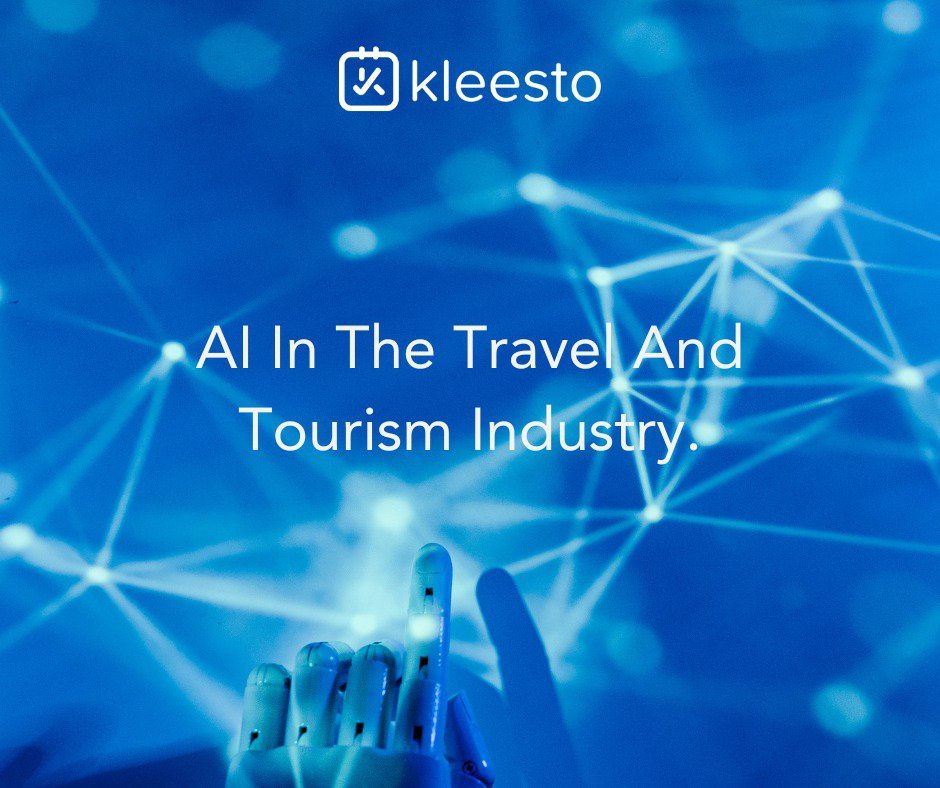Introduction: Unveiling the Future of Travel and Tourism: How AI is Revolutionizing the Industry
Artificial Intelligence, or AI for short, is like a wizard for travel and tourism. It's making things super cool and exciting. Picture this: you want to go on a vacation, and there are many places to choose. AI makes it easy! It's like having a helpful robot friend. The robot helps customers like you and me have the best trips. It answers our questions and even helps with bookings. And that’s not all! AI is also like a detective. It looks at tons of information to figure out what’s trendy. So, it can tell us the best places to visit and even help us get good deals.
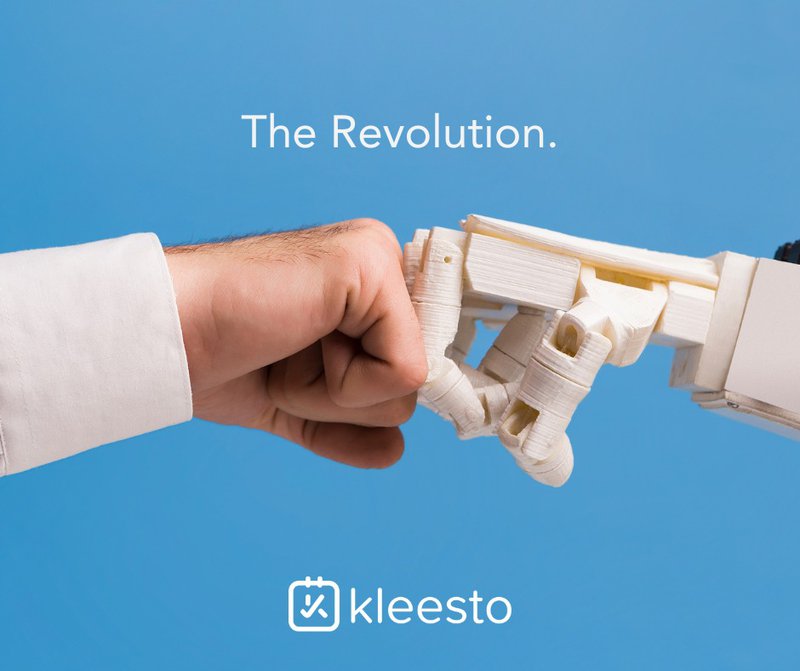
The AI Revolution: How AI Has Changed the Travel Industry
Artificial Intelligence, or AI, has worked like magic in the travel industry. Imagine robots and smart computer programs helping out in cool ways! AI helps with everything, like giving tips on where to go, helping book flights, and even chatting with travelers. Imagine having a robot as your travel buddy!
AI Travel Assistants
AI-powered Travel Assistants are like awesome robot pals for traveling. They are super smart and help us to go on fantastic adventures. Think of having a friend who's like a wizard in booking flights and hotels. That’s exactly what these robot pals do! What's more, they chat just like us and get what we say.
Moreover, these robot pals are like Sherlock Holmes! They scan tons of information to figure out if a flight might not be on time. So, if there's a chance our plane will be late, we can switch things up. But wait, there's more! They're also amazing at shopping for deals. They make sure we don't spend too much. And guess what? They make sure our bags don't get lost. They use cool tech that lets them keep an eye on our bags, so we can chill out and not fret about our stuff. The best part? They guard our travel info like Batman guards Gotham City. They keep all the sneaky internet villains away from our data.
In a nutshell, these AI Travel Assistants are like the ultimate travel buddies. It's like having a guide who knows what we want, even before we say it. They make sure we have all the legroom we need on the plane. Travel companies should totally use these AI pals. Not only will they be the talk of the town, but travelers will be super happy. Plus, everyone's info will be safe as houses!
Advanced Personalization
Advanced Personalization refers to the advanced use of AI technology in the travel industry to tailor and customize each individual customer's experience. This goes beyond basic personalization techniques, utilizing sophisticated algorithms and machine learning to provide highly personalized recommendations and services.
Five key points about Advanced Personalization are:
- AI-powered recommendation engines analyze vast amounts of data to offer highly personalized suggestions for accommodations, attractions, and activities based on individual preferences, previous behavior, and feedback.
- Virtual assistants equipped with natural language processing capabilities understand and respond to customer's specific needs and preferences, providing tailored recommendations, answering inquiries, and assisting with bookings.
- AI algorithms can predict customer preferences before they express them explicitly, enabling proactive customization of travel experiences from booking until the end of the journey.
- Personalized pricing strategies leverage AI algorithms to adjust prices based on individual customer profiles, market demand, and other factors in real-time.
- Advanced Personalization allows for seamless integration across multiple touchpoints throughout the customer journey, creating a cohesive and personalized experience at every stage.
In addition to these benefits of Advanced Personalization in the travel industry, it also enables brands to foster deeper connections with customers by providing tailored experiences that exceed expectations. This level of personalization helps build loyalty and strengthens brand reputation within a competitive industry.
Furthermore, research conducted by Travel Weekly revealed that 83% of travelers are willing to share their personal information in exchange for personalized recommendations. This indicates a high demand for advanced personalization features among travelers prioritizing customized experiences.
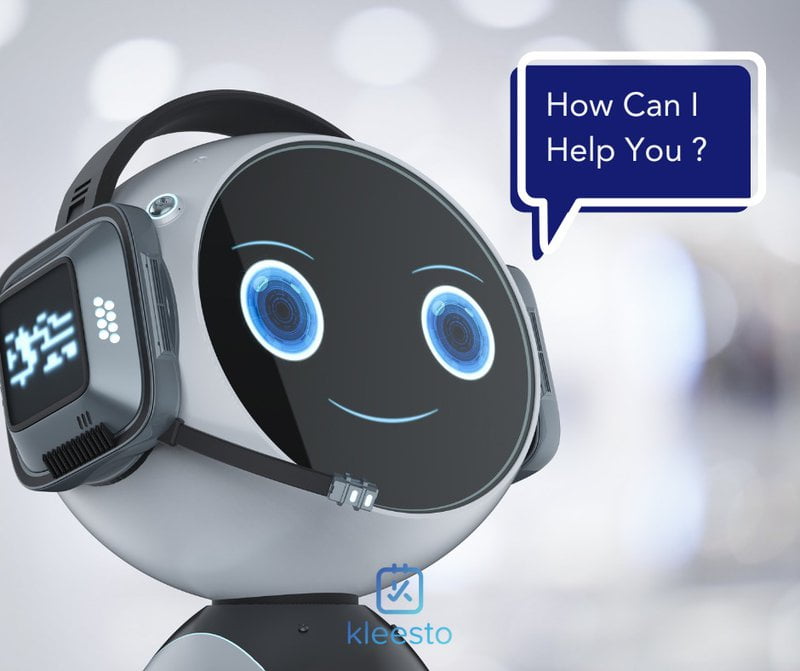
Robots for Face-to-Face Customer Services
In travel, AI has brought robots that talk to people face-to-face. It's like something from a cool science fiction movie! These robots are super smart and friendly. They help travelers by answering questions and giving information. It’s like having a helper who knows everything about your trip.
These talking robots are popping up everywhere. Airports, hotels, and tourist spots are some places where you might see them. Imagine walking into a hotel and a robot helps you check-in. How cool is that? These robots can chat like humans. They can even understand how people are feeling and respond in an excellent way. This makes travelers feel special.
But wait, there's more! These robots are like students who never stop learning. Every time they talk to people, they learn something new. This makes them even better at helping. They can do lots of things like helping with check-ins, giving directions, and even suggesting fun places to visit. It's like having a robot tour guide!
Data Extraction and Insight Generation
The travel industry is like a treasure hunter that digs for golden nuggets of information. To find these nuggets, it has to play detective by looking through loads of stuff. This stuff is called data, which is just a fancy word for information. This data helps the travel industry understand what people like, what's new and cool, and how they're doing.
Now, to be a good detective, the travel industry needs many clues. These clues come in the form of things like booking details, what people say online, flight times, and even the weather! By putting all these clues together, they can see the big picture. They can figure out how to make trips better, find the best prices, and make sure people have an awesome time.
In the end, this detective work helps everyone. The travel industry can make smarter choices. Plus, it's great for travelers too! It means that whether someone is going on a family vacation or a fun adventure, the experience will be just right. It's a win-win for everybody!
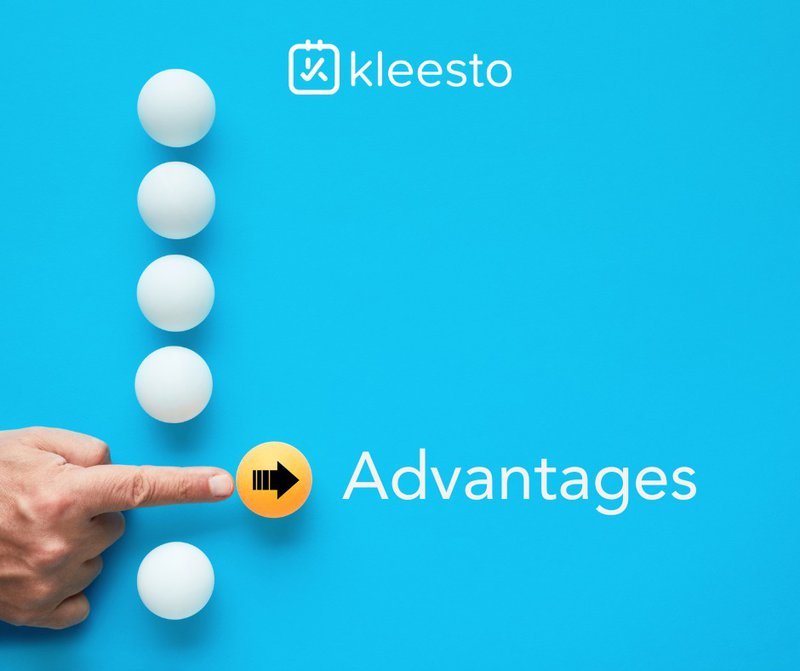
Advantages of AI in the Travel and Tourism Industry
Artificial Intelligence (AI) has revolutionized the travel industry, offering numerous benefits for businesses and customers. Implementing AI technology in the travel industry provides a range of advantages that enhance the overall travel experience.
Offers a Better Customer Experience
AI in the travel industry is like a magic wand that makes things awesome for travelers. Think of AI as a super-smart computer brain that knows what people like. It can change prices to be just right and understands how people feel from what they say online. It even makes hotels feel like home and helps with questions or problems. This smart brain is also great at figuring out flight times, keeping bags safe, and protecting information.
But wait, there's more! AI helps in making travel buddies that talk to us and give us tips while we're on our adventure. These buddies are like friendly robots that know what we like. They can tell us which places are fun to visit and what yummy food to try. Also, some real robots can now chat with people face to face. They are like characters from a sci-fi movie, making us feel like we are in the future.
So, AI makes traveling feel like a fun game. It knows what we like, helps us choose the best stuff, and keeps us safe. Whether it’s an AI robot buddy or a real robot helper, they both make sure we have the time of our lives. It’s like having a magic travel fairy that makes every trip a dream come true!
Simplifying the Management of Baggage
In the travel industry, AI technology has revolutionized the handling of baggage. Here are some key ways in which AI simplifies the process:
- Efficient Sorting: AI algorithms analyze passenger data and match it with corresponding baggage, ensuring accurate sorting and minimizing errors.
- Automated Tracking: AI-powered systems track luggage throughout the journey, providing real-time updates to travelers and airport personnel.
- Enhanced Security: AI can identify suspicious or prohibited items in luggage through advanced scanning techniques, increasing overall security levels.
- Improved Efficiency: AI streamlines baggage handling operations by optimizing resource allocation and reducing manual intervention, leading to faster processing times.
- Predictive Maintenance: AI analytics predict maintenance requirements for baggage handling systems, enabling proactive repairs and minimizing disruptions.
- Data Analysis: By analyzing patterns and trends in baggage handling data, AI helps airlines and airports identify areas for improvement and enhance overall efficiency.
Furthermore, it is essential to note that these advancements simplify baggage handling and contribute to a seamless travel experience for passengers.
Historically, managing baggage has always been a challenge for the travel industry. Manual processes often led to delays, mishandling, and lost luggage. However, with the introduction of AI technology, the industry has witnessed significant improvements in efficiency and customer satisfaction when managing luggage. AI in the travel industry assists with baggage handling and helps brands stay relevant in the ever-evolving world of travel and tourism.
Helps Brands Stay Relevant
The integration of AI technology helps brands in the travel industry remain relevant in today's fast-paced market. By leveraging AI-driven applications and data analysis, brands can gain valuable insights into customer preferences and behaviors. This lets them personalize their offerings, implement dynamic pricing strategies, and optimize customer support services. With AI's ability to analyze sentiments and provide advanced personalization, brands can stay ahead of the competition and deliver exceptional customer experiences.
Additionally, AI tools enhance data security, improve data quality, and simplify baggage handling processes, ensuring that brands stay relevant in an ever-evolving industry landscape. Embracing AI is essential for travel brands to keep up with the changing demands and expectations of tech-savvy consumers.
Offers Better Data Security
AI, is doing cool stuff in the travel industry. When companies use AI, they can keep your information safe. This is important because you don't want bad people to get your data.
To show how AI helps, imagine a big table with lots of information on it. This table lists all the smart tools and tricks that AI uses to guard your data. It would talk about codes that lock your data, alarm systems that ring if someone tries to peek, and ways to keep copies of your data safe. Having all this information in one place helps us understand how AI is like a superhero for data safety.
But wait! AI can also sniff out dangers before they even happen. Think of it like a detective that finds clues and catches villains before they can do anything wrong. Also, AI ensures that the information about your vacations is rock-solid, so you don’t have to rely on guessing or flipping a coin to make plans. In a nutshell, AI is like a mix of a superhero and a detective for keeping your travel data safe and sound!
Improves the Quality of Data
AI plays a crucial role in enhancing data quality in the travel industry. By leveraging advanced algorithms and machine learning techniques, AI can analyze vast amounts of information and identify patterns that humans may not be able to detect. This leads to more accurate and precise data, ensuring that decision-making processes are based on reliable information.
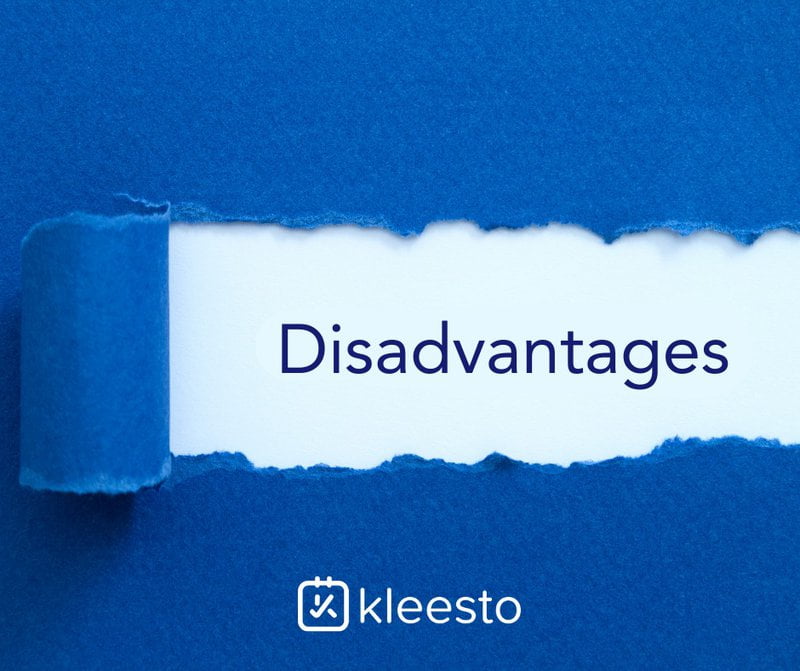
Concerns and Issues of AI in Travel and Tourism
Privacy Concerns
In an age where data is the new currency, deploying AI systems in the travel industry raises concerns about data privacy and protection. AI-powered platforms, such as travel booking websites and virtual assistants, typically require users to provide personal information like names, addresses, and payment details. If these systems are not adequately secured, there is the risk of data breaches, where unauthorized parties can access sensitive information. This not only puts individuals’ privacy at risk but can also damage the reputation and credibility of travel companies.
Job Displacement
As AI systems become increasingly sophisticated, they automate many tasks that human employees once performed. For instance, chatbots and virtual assistants can now handle customer inquiries and bookings, which human agents traditionally manage. This automation can lead to job displacement, leaving many individuals without employment opportunities in the travel industry. The long-term impact of this trend could be significant, as it changes the employment landscape and potentially leads to a devaluation of human skills.
Technological Glitches
While AI systems are designed to optimize and streamline operations, they are not immune to errors or glitches. In the travel industry, where precision and timeliness are essential, a technical glitch in an AI system can have severe consequences. For example, an AI-powered flight scheduling system error could lead to delays, cancellations, and logistical issues affecting thousands of travelers. Moreover, AI systems can sometimes produce unexpected results or fail to account for certain variables, leading to suboptimal or incorrect recommendations, bookings, or services.
Conclusion: Embracing the Future of AI in Travel and Tourism
The future of AI in travel and tourism is promising, with significant advancements in the industry. AI is revolutionizing the sector by enhancing customer experiences, improving efficiency, and providing personalized recommendations. Embracing AI in travel and tourism means embracing innovation, automation, and a more seamless and tailored travel experience. If you run a travel business and want to take advantage of innovation and technology, don’t lose the chance to book a meeting with the kleesto Pandas and explore how a booking management software can lead your company to new rights!
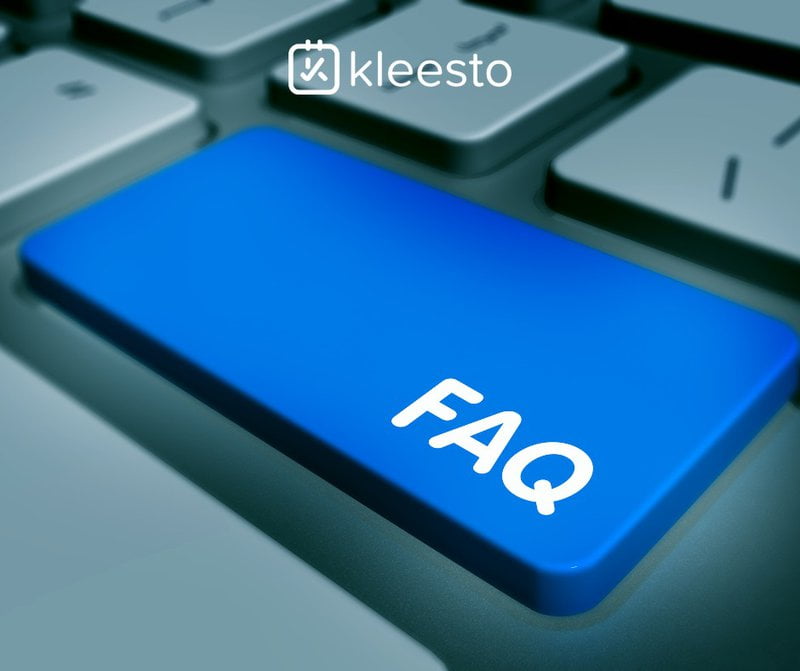
FAQs about The application of AI In the Travel And Tourism Industry: How Ai Is Revolutionizing The Industry
How is AI changing the travel industry?
AI is revolutionizing the travel industry in several ways:
- AI travel assistants: AI assistants can help book hotels and flights, add dates to your calendar, and more.
- Advanced personalization: AI uses data science and machine learning to provide tailored recommendations based on user preferences.
- Robots for face-to-face customer services: Chatbots powered by AI are used by hotels, travel agencies, and airlines to improve customer service.
- AI-driven applications for flight forecasting: The FAA uses AI and data science algorithms to predict flight demand.
- Data analysis: AI works with data science and machine learning to provide companies access to large amounts of data, supporting decision-making processes.
What are the benefits of AI in the travel industry?
AI offers several advantages to consumers, retailers, and intermediaries in the travel industry:
- Better customer experience: AI enables personalization, dynamic pricing, sentiment analysis, improved hospitality, and customer support.
- Simplifies baggage handling: AI tools like BagsID use biometric data to track and handle baggage operations, reducing human error.
- Helps brands stay relevant: AI sentiment analysis tools like Brand24 analyze social media scores, assisting brands to maintain their identity and track consumer sentiment.
- Offers better data security: Cloud-based AI tools have encryption protocols to protect sensitive data, ensuring company data security.
- Improves quality of data: AI tools with self-optimizing machine learning algorithms enhance the quality of data available to brands, supporting data-driven decision-making.
How does AI negatively impact the travel industry?
While AI has numerous positive impacts, there are some concerns about its harmful effects in the travel industry, including:
- Potential job displacement: AI technology could replace certain jobs in the industry, leading to job loss for some individuals.
- Reliance on technology: Over-reliance on AI and technology may lead to a lack of human interaction and personalized experiences for travelers.
- Data privacy concerns: The use of AI involves collecting and analyzing large amounts of personal data, raising concerns about data privacy and security.
- Algorithm bias: AI algorithms can sometimes exhibit bias, impacting the fairness and inclusivity of the travel industry.
How is AI being used in the tourism industry?
AI is being utilized in the tourism industry in various ways, including:
- Improved customer service: AI-powered chatbots instantly respond to frequently asked questions and assist customers with travel inquiries.
- Enhanced travel recommendations: AI analyzes user data to offer personalized travel recommendations based on individual preferences and interests.
- Streamlined booking processes: AI-powered systems automate and simplify booking processes, making it easier and quicker for travelers to find and book accommodations and flights.
- Optimized marketing strategies: AI helps tourism companies and destinations target the right audience and tailor their marketing campaigns for maximum effectiveness.
- Efficient resource management: AI technologies assist in optimizing resource allocation, such as managing hotel room availability and predicting travel demand.
What are some examples of AI in the travel industry?
There are numerous examples of AI applications in the travel industry:
- Virtual travel assistants like Siri, Google Assistant, and Amazon Alexa help users with travel-related tasks, such as finding flights and booking hotels.
- Airline companies use AI to automate customer service and provide personalized recommendations to passengers.
- AI-powered chatbots assist travelers in resolving queries, providing information about travel destinations, and offering real-time support.
- Dynamic pricing algorithms adjust prices based on demand and availability, optimizing revenue for hotels and airlines.
- AI-driven language translation tools facilitate communication between travelers and locals, overcoming language barriers.
How is AI transforming the travel and hospitality industry?
AI is bringing significant transformations to the travel and hospitality industry:
- Improved customer experiences: AI personalization, chatbots, and virtual assistants enhance the travel experience, providing tailored recommendations and instant customer support.
- Efficient operations and resource management: AI automates and optimizes various tasks, such as booking management, inventory control, and resource allocation.
- Data-driven decision-making: AI enables data analysis and predictive modeling, assisting businesses in making informed decisions to meet customer demands and optimize operations.
- Enhanced safety and security measures: AI technologies, like facial recognition and biometric identification, improve security measures at airports and hotels.
- Innovative marketing strategies: AI enables targeted marketing campaigns, allowing tourism businesses to reach their desired audience effectively.



